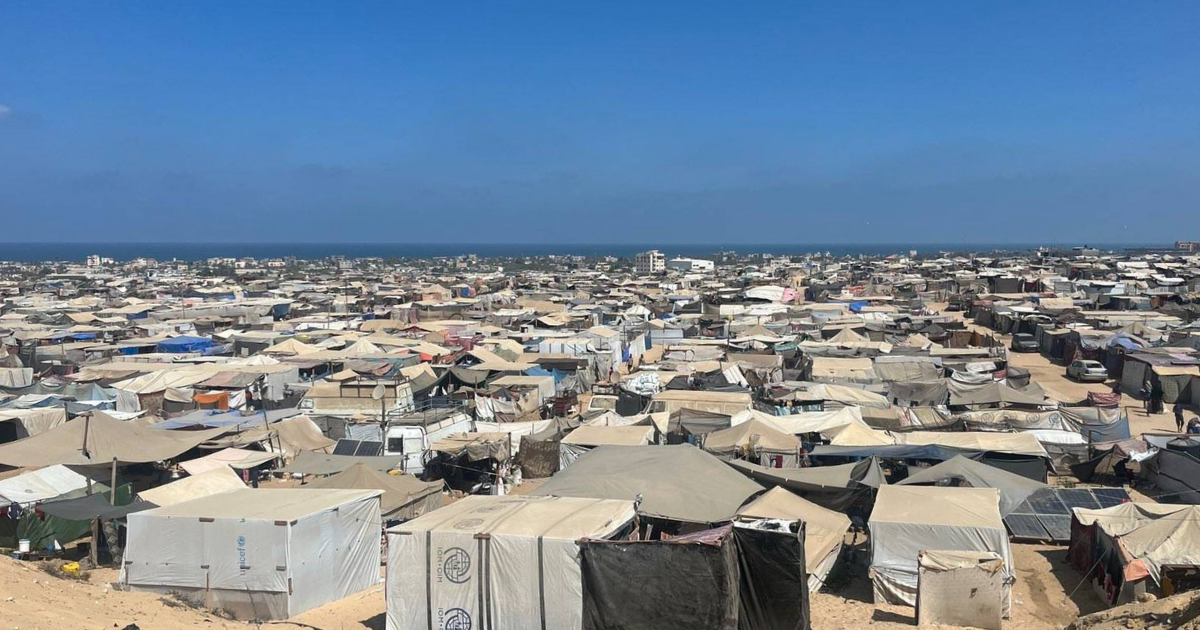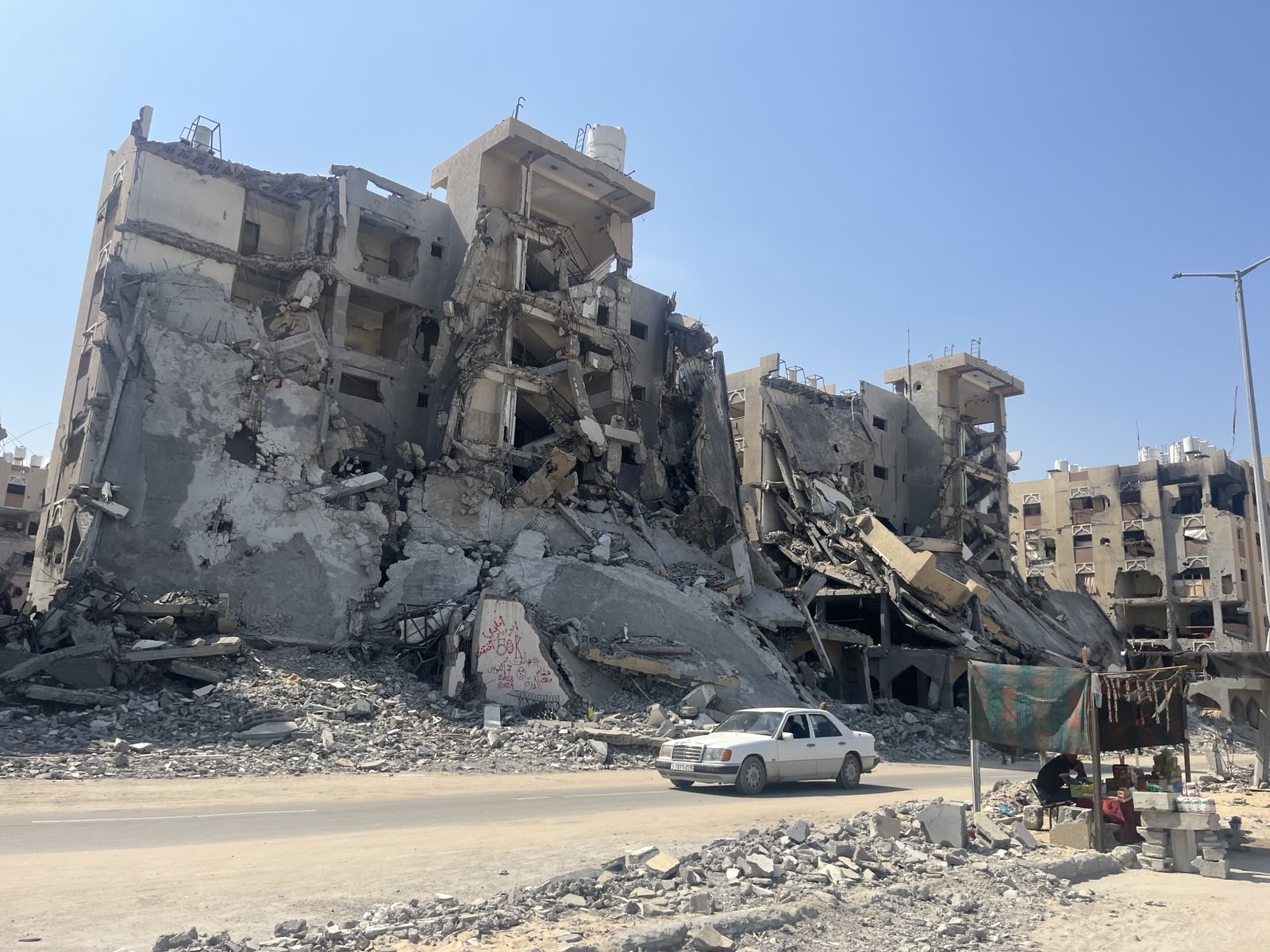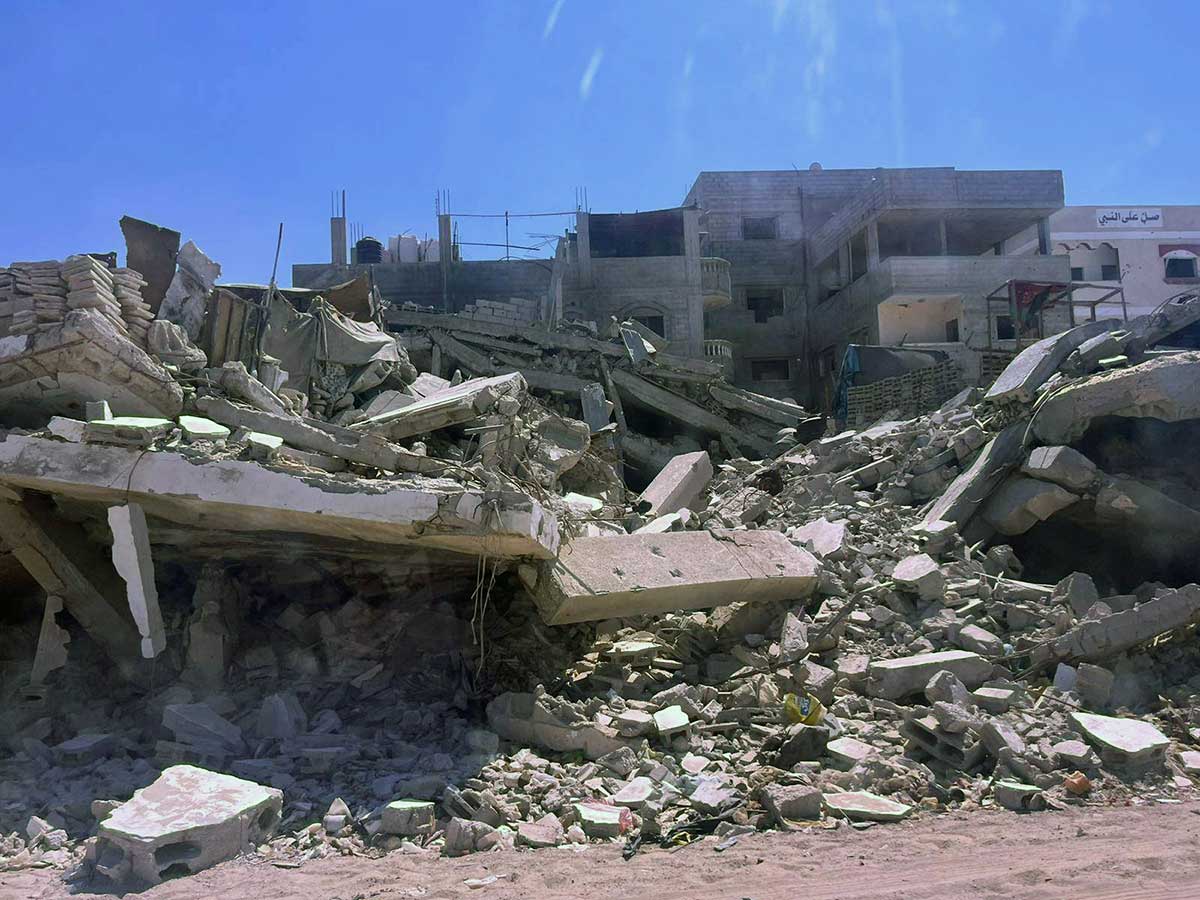Healthcare Support for the People of Gaza
24 March: Attack on Nasser Hospital, the testimony of EMERGENCY’s team
“We heard an explosion and the walls started shaking,” says Filippo Pelagatti, EMERGENCY’s anaesthetist in Gaza. “We were taken to a safe room on the ground floor together with the hospital’s staff. As soon as possible, we went back to our patients. Without that surgery, they would have died.”
EMERGENCY’s activities in Gaza
Primary Healthcare Clinic in al-Qarara
Our team, which has been in Gaza since August 2024, constructed and now runs a clinic in the al-Qarara area.
In the facility, we provide first aid, stabilisation of medical and surgical emergencies, transfer to other hospital facilities, basic medical and surgical assistance for both adults and children, outpatient reproductive health activities, and post-operative nursing follow-up care.
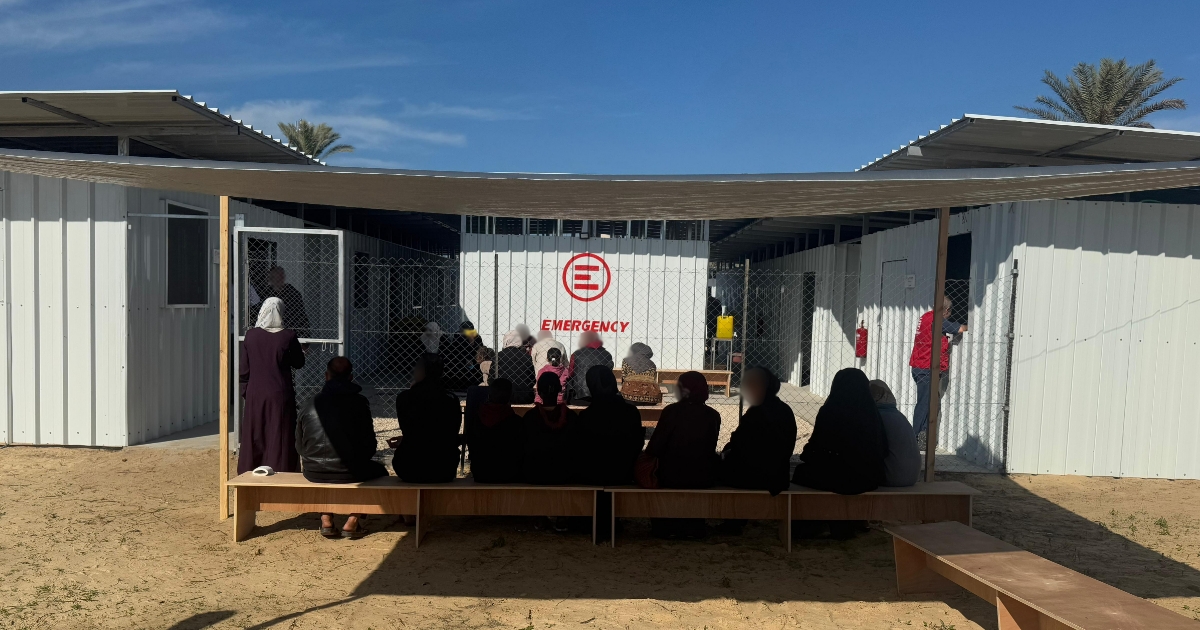
We estimate that the clinic could see up to 300 patients every day.
The medical team, including both international and local personnel, is currently comprised of four doctors, four nurses and one pharmacist.
The clinic has an external waiting room, a triage room, an emergency room with an observation area, a dressing room, four doctors’ offices, a gynaecologist’s office, an immunisation room, a medication dispensary, workspaces for the doctors and logistician, a canteen and a storeroom.
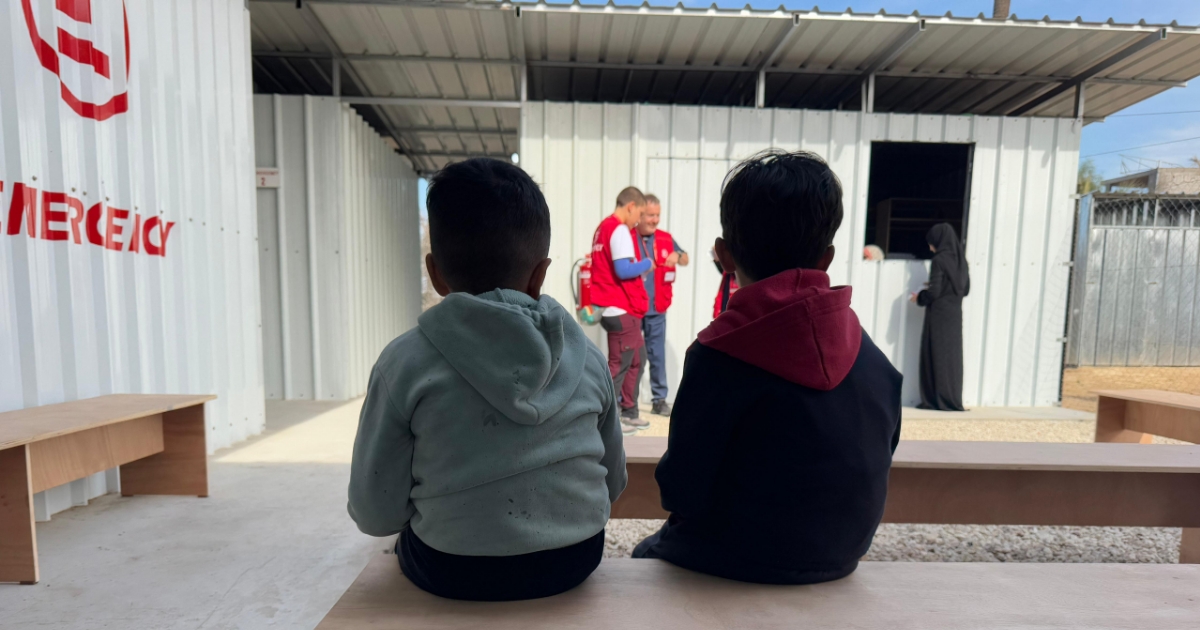
The construction of the clinic has had to contend with long bureaucratic delays and the enormous difficulty of finding materials, due to the insufficient flow of humanitarian aid in recent months. Now, the flow of aid has increased, as well as the availability of basic necessities.”
Francesco Sacchi, EMERGENCY’s Head of Mission in Gaza
Outpatient Clinic in al-Mawasi
Since November 2024, an EMERGENCY team has been providing medical and logistical support to a primary healthcare clinic in the al-Mawasi area (Khan Younis), run by the Culture & Free Thought Association (CFTA) — a local, independent NGO that has been operating in Gaza since 1991 to provide broad assistance to the Palestinian population, including cultural, educational, social and health activities.
Here, patients receive free basic care, medications and the necessary dressings following surgery.

EMERGENCY’s medical team – consisting of two nurses and two doctors – supervise activities in the clinic and coordinate and train the local colleagues employed by CFTA, comprised of seven medical and non-medical personnel.
We also manage the supply of all material necessary to ensure the continuity of the activities.

Since we arrived in the Gaza Strip in August 2024, we have cared for over 7,000 patients. Meanwhile, we have witnessed the humanitarian situation worsening day after day. The population is exhausted after more than fifteen months of conflict, and many are living in overcrowded conditions. We have been seeing cases of gastro-intestinal illnesses, dermatitis and respiratory tract infections, which are related to the living conditions people have endured for months now.”
Giorgio Monti, EMERGENCY’s Medical Coordinator in Gaza
Support to the Nasser Hospital, Khan Younis
In March 2025, one of our teams worked at Nasser Hospital, the largest hospital in southern Gaza.
Our surgical team provided support in first aid and training, specifically on the management of mass casualties of war-wounded patients.
Following the attack on the hospital on 23 March, our team’s activities at the Nasser Hospital were suspended, pending the re-establishment of necessary security conditions and guarantees.
Humanitarian aid access increasingly necessary
Over the past 15 months, humanitarian organisations trying to bring aid into Gaza have faced great limitations in access, difficult security conditions and increasing restrictions on protected humanitarian space.
More than 80% of Gaza has been subject to evacuation orders. Today, around 90% of the population lives in tents and makeshift accommodation.
Data: OCHA
We hope that the ceasefire will allow more humanitarian aid to enter Gaza, because from the beginning we have encountered daily difficulties in bringing in not only basic necessities like food and water, but also medicines and medical devices used to provide the population with necessary and essential healthcare assistance.”
Eleonora Colpo, EMERGENCY’s Nurse in Gaza

